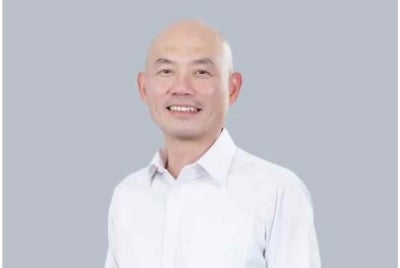Empowering the disabled for mushroom cultivation
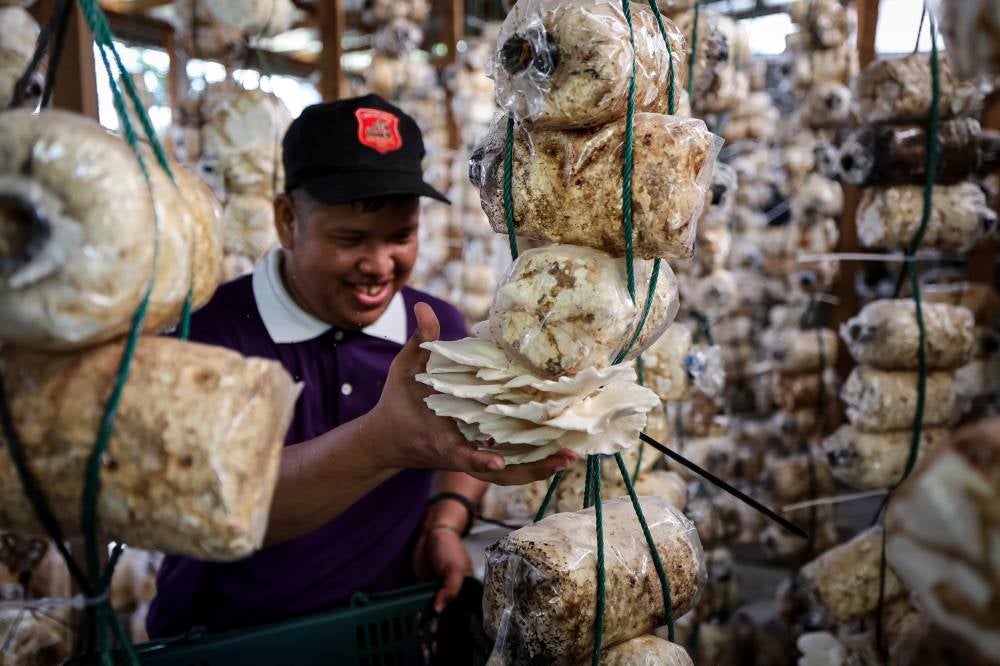
KUALA LUMPUR - Employers are gradually realising that hiring people with disabilities (PWD) is not just charity. Given the opportunity, the disabled often outperforms other employees.
Based on this premise, the Kasih Templer Autism Community Rehabilitation Centre (PDK) has taken the initiative to empower its disabled trainees to work on the centre’s silk oyster mushroom farming project.
Located in Batu Caves, Selangor, the centre is committed to its role of developing the PWD’s potential as the trainees have shown their skills in mushroom cultivation initiated by the PDK over the past five years.
The project which kicked off in 2018 is part of the PDK’s involvement in the mushroom business, which is regarded as viable and income-generating.
The centre’s supervisor Faziah Ahmad said the initiative is in line with the government’s Economic Empowerment Programme (EEP), a structured training programme that delivers knowledge, skills and a positive attitude to people with special needs or PWD so that they can be gainfully employed.
"...indirectly, it provided employment opportunities for PWD youths at the PDK as these trainees were having difficulties in competing with the outside world and were not able to adapt themselves to the environment and the people around them,” she told Bernama at the PDK office recently.
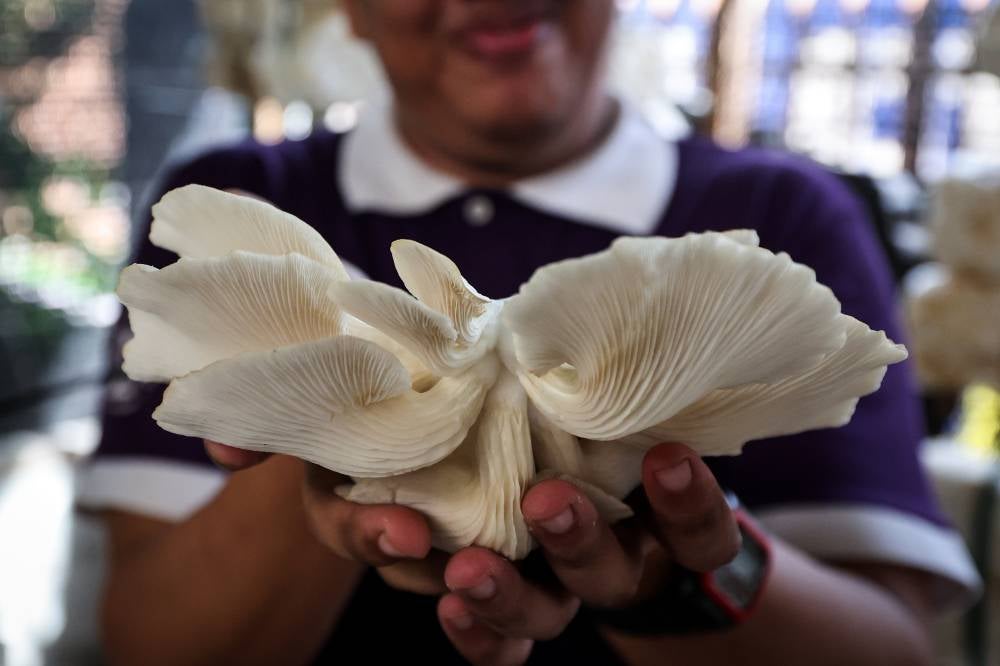
MUTUAL UNDERSTANDING
When it comes to finding appropriate jobs, people with disabilities are still heavily disadvantaged. This is mainly because of negative prejudices that PWD are not able to adapt to the environment, hence indirectly regarded as a burden to the agency or company hiring them.
For the autism rehabilitation centre, providing job opportunities for PWD trainees is part of efforts to empower the disabled economically, said Faziah, noting that mutual understanding has long been established between the trainees and PDK staff.
"When we were first incepted on Jan 1, 2009, about 50 of our trainees were autistic children and youths. They were accepted in stages. Later in 2019, this centre opened its door to other disabled children including those with Down syndrome and celebral palsy who could still walk.
"At that time, 80 per cent out of 68 trainees at this PDK were autistic and with learning disabilities, ages between 4 to 34 years. They came to the centre twice a week for their therapy sessions,” she said adding that the centre is supported by five staff.
According to Faziah, five trainees, ages between 24 to 32 years are engaged in the mushroom project and they usually work daily except on Saturdays and Sundays.
Although the five trainees are illiterate, they can listen to instructions and carry out their tasks well.
"When given the responsibility to work on the mushroom farm, we can see their commitment in making the tasks as their daily routine, starting from the process of watering the mushrooms to plucking and later packing the products for marketing,” she added.
She also said that through their engagement in mushroom cultivation, the trainees are indirectly exposed to pre-vocational activities through agriculture as well as teaching them to be self-reliant.
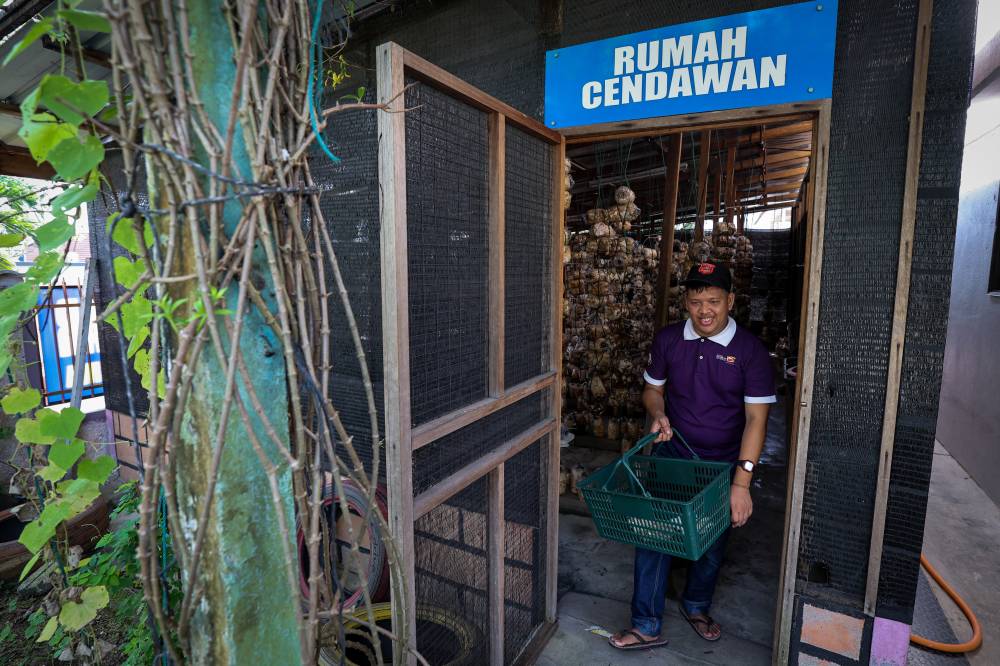
MUSHROOM PROJECT
On the PDK’s silk oyster mushroom project, Faziah said some 2,000 wooden blocks are placed in the mushroom ‘house’ that is, a zinc-roofed hut covered with a black net as protection from the sun’s rays, which is located at its compound.
This writer, who was taken on a visit to the mushroom house, found that the mushroom fruiting blocks were made of wood particles, arranged and hung up to a height of about two metres from the floor level.
Every mushroom fruiting block contains seedlings acquired from a mushroom entrepreneur in Sabak Bernam, Selangor. The entrepreneur also taught PDK staff or teachers on how to grow and care for mushrooms.
"Prior to this, we tried several cultivation methods including using coconut waste and padi straw but they did not work out as the blocks from the crop wastes made it difficult for our PWD trainees to arrange and hang them.
"Besides that, the mushroom fruiting block has a longer lifespan of three to four months. Through the block hanging system, more mushrooms can be produced from each block,” she said adding that on average, they can collect about 80kg mushrooms daily.
Faziah said typically, oyster mushrooms are ready to harvest about three to four days after the first mushrooms begin to form and they are easy to manage, noting that they will grow rapidly after continuous rainfall and thrive in cold temperatures and damp environments.
"During the hot weather, watering twice of thrice a day may suffice. Mushrooms will then start to grow and develop (fruiting stage) and are ready for plucking when the mushroom petals mature. Every mushroom fruiting block will be replaced within three to four months,” she added.
On the silk oyster mushroom, she said it has its own health benefits and nutritional value, rich in vitamin D and helps improve the immune system.
"This mushroom is more white and larger than other oyster mushrooms. It is best cooked as fried mushroom, mushroom soup, spring rolls and steamed mushroom buns as it has a solid taste compared to the brown oyster mushroom that is widely available in the market,” Faziah added.
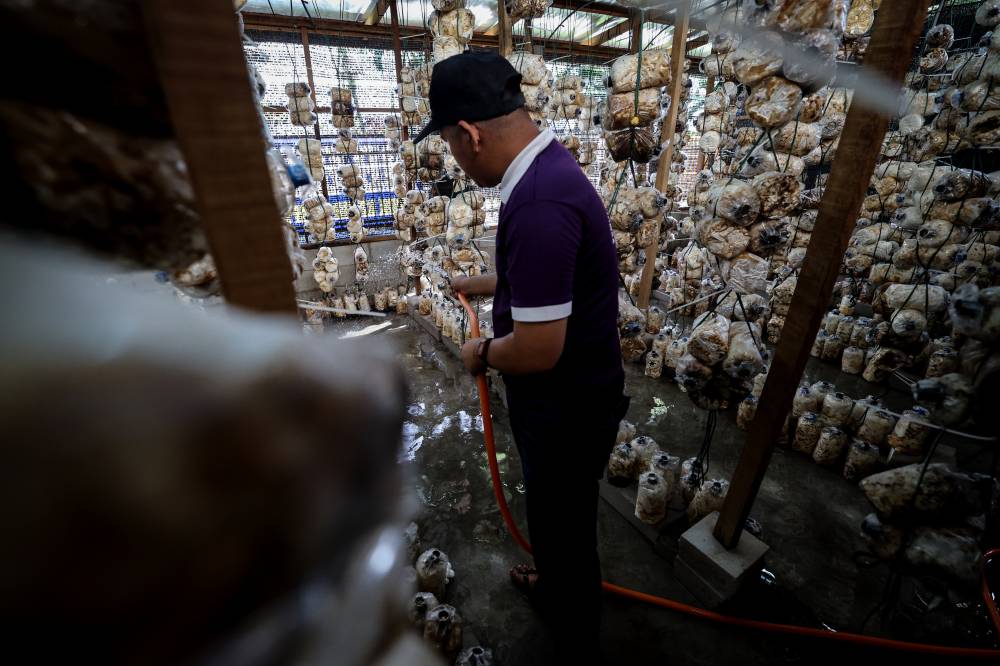
COMMUNITY SUPPORT
At the onset of cultivating the mushrooms, the PDK only received the support from the local community as well as the trainees’ parents who were its regular customers.
At that time, plucked mushrooms were packed in small packets of 250 grammes and were sold at around RM5 a packet.
However, through word-of-mouth, PDK mushrooms began to gain popularity among several parties including traders and staff at government complexes around Batu Caves and Gombak.
"At first we verbally advertised to the local people in addition to having banners on display here. Later, we put up ads on Facebook, after which we promoted our product to government staff including local authorities (PBT), land offices as well as traders in surrounding areas.
‘’Alhamdulillah (Praise to Allah) until today we have a steady clientele who are mainly civil servants at the government complex here. We usually pack our mushrooms based on customer orders such as for 1 kg or 6kg, or packets of 250 gm that are currently sold at RM7 for each packet,” she said.
She said that proceeds from the mushroom sales will be used by the PDK to carry out various social activities with the trainees.
"From the mushroom sales, we will diversify our activities together with the trainees such as teaching them how to use the public transport including buses as well as sending them for horse therapy in the Klang Valley,” she added.
According to Faziah, the five trainees who are currently working at the mushroom house are given a monthly allowance of RM400 and if the centre achieves a surplus profit, they will be rewarded with gifts or an annual bonus payout.
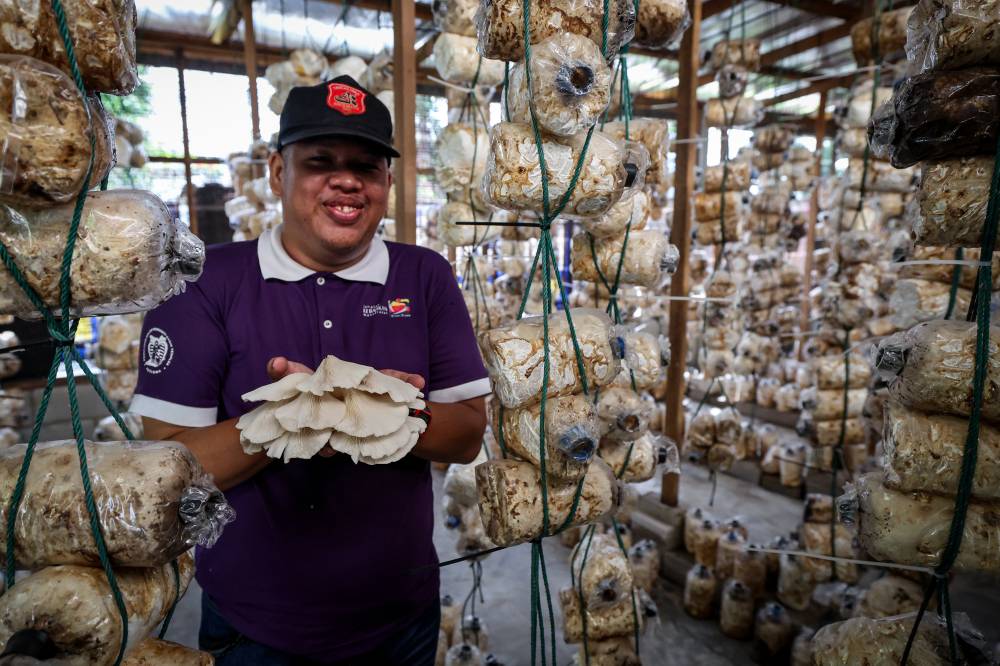
DELIGHTED
A trainee at the PDK, Muhammad Sufian Abd Ghani or affectionately called Abu, said he was delighted to be given the opportunity to help his teachers work on the mushroom project.
Abu, 32, said mushroom farming has become his daily routine and he is committed to the project.
"I usually take turns with my friends to water, pluck and pack the mushrooms before they are sold to customers. I always remind trainees on duty not to forget to water the mushrooms, as I don’t want the mushrooms to be damaged or die,” he added.
In fact, Abu makes it a point to come to the PDK almost every day even on his off days on Saturday and Sunday.
"I will make sure that every day at 7.30 am, all these mushrooms will be watered including in the evening. I enjoy doing this work,” said Abu, who is also regarded as ‘mandur’ (head of workers) by other trainees.
Abu who lives nearby, cycles to the centre. The bicycle is a gift from the PDK. In fact, he has also been named ‘Best Trainee’ by the PDK. - BERNAMA
Download Sinar Daily application.Click Here!



